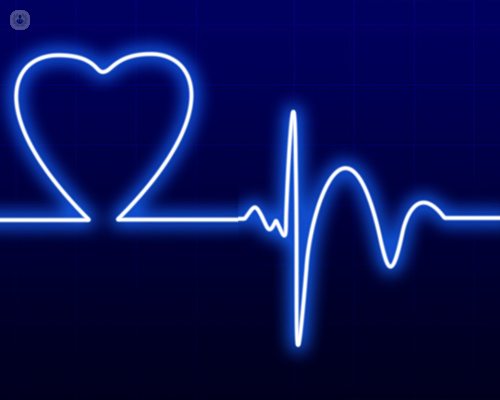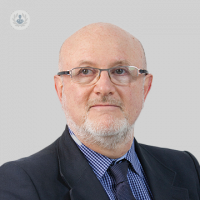Can you die of a broken heart?
Escrito por:What exactly is broken heart syndrome – and can you really die from it? We asked leading cardiologist Dr Adrian Chenzbraun:

What is broken heart syndrome - and what are the symptoms?
Broken heart syndrome is an acute cardiac condition. It typically presents itself as a standard heart attack, and it is usually encountered in middle-aged or older women patients in the context of intense stress – that can be psychological (e.g. bereavement) – or at the time of a major non-cardiac illness
Broken heart syndrome is also known as Takotsubo cardiomyopathy. “Takotsubo” is a Japanese name for a specially-shaped tool to catch octopus which has a ballooned end. We call it this because during the acute phase of the condition, the heart shape becomes distorted and dilates like a balloon.
Generally speaking, clinicians were not aware of this condition until about 20 years ago. Many people were misdiagnosed with heart attack, but we came to find that a number of them, especially female patients, had a quick recovery of their heart function and had normal coronary arteries, suggesting the condition was something else entirely.
Why are some people prone to broken heart syndrome?
We don’t know much about why certain people are prone to broken heart syndrome. All we know at present is that broken heart syndrome tends to affect middle-aged to elderly women with recent psychological or physical stress.
“Recent” is a loose term here – it includes people who have just experienced something traumatic in the last days, as well as people who get symptoms weeks after the event. The event could be something acute, such as bereavement, or a continuing stressful event, such as general family difficulties.
How does broken heart syndrome differ from a heart attack?
It’s very difficult to differentiate the two at first. If you have broken heart syndrome you’ll experience symptoms very similar to a heart attack, such as chest pain, and on an ECG (electrocardiogram) the changes will also be similar.
The difference becomes apparent on on echocardiogram, which we use to get a picture of the heart muscle itself. An echocardiogram would show a typical deformation of the heart. If you are a middle-aged or elderly woman, this is the point at which we may suspect broken heart syndrome, rather than heart attack.
We won’t be able to confirm the diagnosis until we conduct an angiogram. This is where we look at the coronary arteries to see if there is any evidence of coronary heart disease. A negative result would support the diagnosis of broken heart syndrome.
Is broken heart syndrome fatal?
Broken heart syndrome can be fatal, but this is rare. The in-hospital risk of death is similar with the odds of death for someone with an acute myocardial infarction – around 4-5%.
The difference with a heart attack is that full recovery is is seen in the majority of broken heart syndrome patients. Those who recover will not have any lasting problems. They might be under certain medications, but on the whole, prognosis is very good. The recovery period starts within a week or two, and full recovery takes place in a matter of weeks.
It’s possible to experience broken heart syndrome more than once. Again, however, this is rare.
Can broken heart syndrome be prevented?
We do not know of any way to prevent broken heart syndrome but carers and physicians should be aware of the possibility of this diagnosis in middle-aged or elderly women who have a heart attack-like presentation on the background of emotional stress or major non-cardiac acute medical condition.


